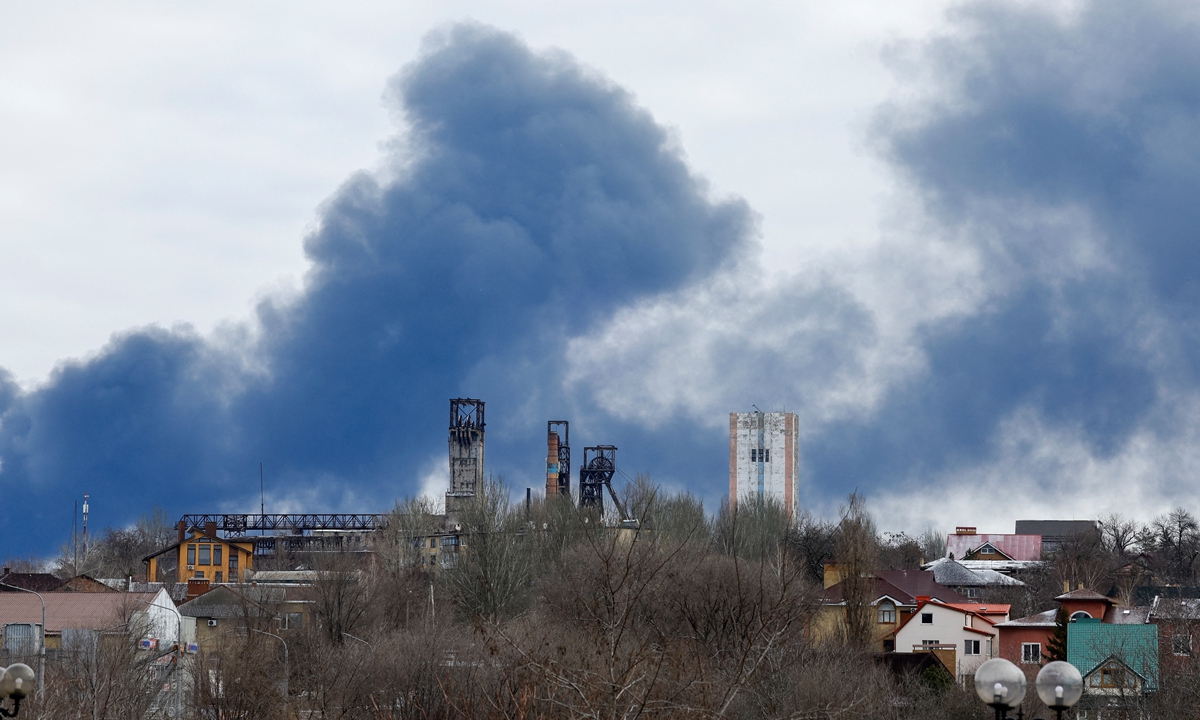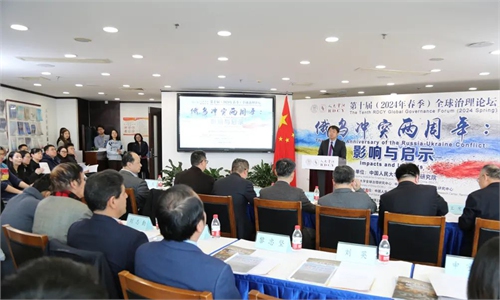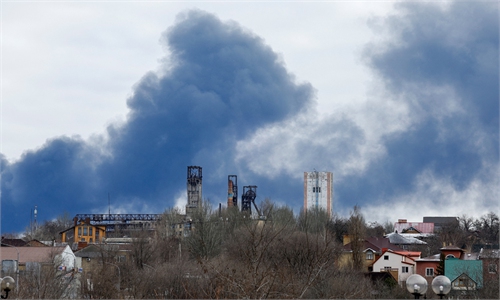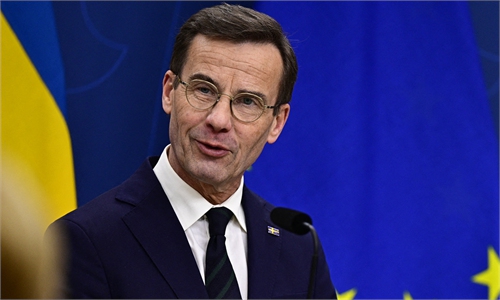‘Western rifts’ exposed as Macron’s remarks on sending troops to Ukraine contradicted by US, allies

Smoke rises above buildings in the course of Russia-Ukraine conflict in Donetsk, Ukraine on February 19, 2024. Photo: IC
After the US and some European countries made remarks contradicting French President Emmanuel Macron's position on aid to Ukraine, Chinese experts pointed out that this reflected Western discord on the matter, given the current deadlock on aid to Ukraine, and that this may exacerbate the difficulties in paving the way for peace talks.
During a meeting of European leaders in Paris on Monday local time, French President Emmanuel Macron declined to rule out the possibility of putting Western boots on the ground in Ukraine in order to prevent a Russian victory, according to Reuters.
Following Macron's remarks, the US State Department and the Pentagon both reiterated that President Joe Biden had ruled out sending US troops to fight in Ukraine, CNN reported.
Meanwhile, in addition to NATO Secretary-General Jens Stoltenberg saying that the military alliance had no plans to send troops to Ukraine, many other European leaders distanced themselves from the possibility of committing soldiers to the war, including those from Germany, UK, Spain, Poland and the Czech Republic.
Chinese Foreign Ministry spokesperson Mao Ning said during a regular press conference on Wednesday that China's position on the Ukraine crisis is consistent and clear, and calls on all sides to build consensus and accumulate conditions for de-escalation and ceasefire. "China will continue to play a constructive role for the political settlement of the Ukraine crisis," Mao said.
The US and several European countries' contrasting remarks with Macron's reflected the current internal divisions within the West on the issue of Ukraine, Cui Hongjian, a professor with the Academy of Regional and Global Governance at Beijing Foreign Studies University, told the Global Times on Wednesday, adding that NATO is unlikely to directly involve itself in the conflict, as adopting practices that minimize harm to its own interests while still gaining some strategic benefits is in its best interests.
Cui added that with the conflict entering its third year, the West is stuck in a deadlock over aid to Ukraine, and Macron's stance can be seen as a diplomatic counterattack against Russia, given that the West believes Russia is currently gaining momentum in the battlefield.
"The different voices expressed by the US and European leaders may also have achieved the so-called 'strategic ambiguity' that Macron wanted to create, causing some confusion for the Russian side regarding the current situation in the West," the expert said.
The Kremlin warned on Tuesday of the inevitability of a direct conflict between Russia and the US-led NATO military alliance if European members of NATO sent troops to fight in Ukraine, according to media reports.
Analysts noted that it appears the parties involved are drifting farther apart from peace talks, as both sides have shown a lack of confidence and sincerity in pursuing dialogue for peace.
Cui said that the Russian side is giving the West the impression that it has no intention of halting the war, and in response, Europe will definitely not show weakness, as it is now moving to establish consensus aimed at preventing a Russian victory. "Therefore, it seems that there is a lack of a basis for peace talks, given that at least one party needs to show some sincerity to pave the way for peace talks," the expert said.



